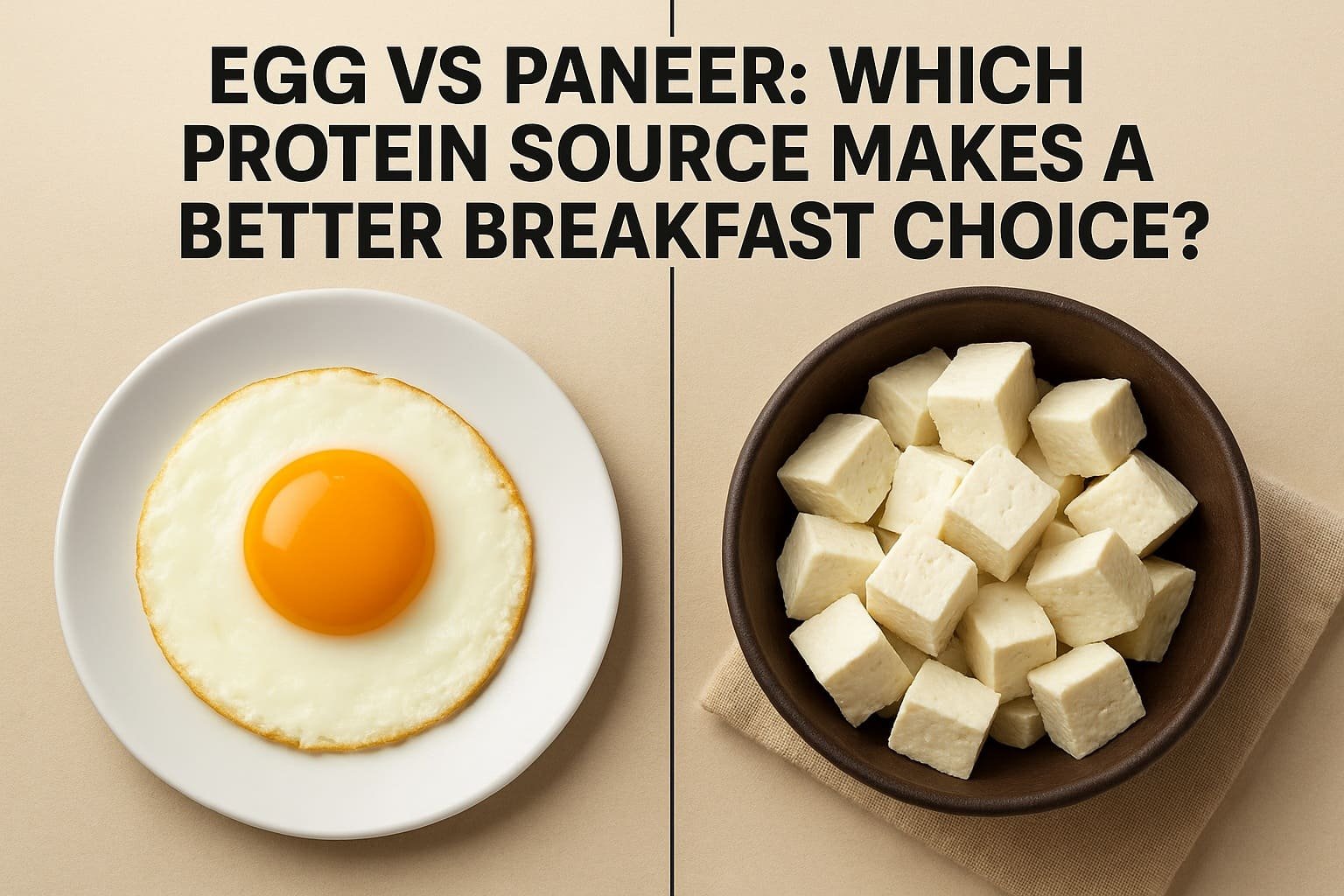
Choosing the right protein-rich food for your breakfast can make a big difference in your energy levels, muscle recovery, and overall health. Eggs and paneer are two of the most popular protein choices in Indian households. Both offer excellent nutrition, but they differ in how they fit into your diet, lifestyle, and fitness goals. Understanding these differences helps you build a healthier breakfast plate.
Eggs are known as one of the most complete food sources available. They contain all essential amino acids, making them a complete protein ideal for muscle repair and growth. One large egg gives about 6 grams of protein, making it perfect for a quick and light breakfast.
Eggs are also rich in vitamins like B12, A, D, and minerals such as selenium and choline—which support brain function, metabolism, and immunity. Because they are easy to cook and digest, eggs suit almost every lifestyle, from students to athletes to working professionals.
However, people with high cholesterol or specific dietary restrictions (like vegans and some vegetarians) may avoid eggs or limit intake.
Paneer is one of the best vegetarian sources of protein. A 100-gram portion contains around 18 grams of protein, making it almost three times richer in protein than eggs per gram. Paneer is made from milk, which means it provides casein protein—a slow-digesting protein that supports muscle recovery throughout the day.
Paneer is also loaded with calcium, phosphorus, and healthy fats, making it a great food for bone strength and long-lasting satiety. It’s especially recommended for vegetarians, kids, and those trying to gain muscle or weight in a healthy way.
However, paneer can be high in calories and saturated fat, especially if made from full-cream milk. Anyone on a weight-loss or low-fat diet should watch portion sizes or opt for low-fat paneer.
Paneer wins in total quantity, but eggs offer complete protein with all essential amino acids.
For weight loss, eggs are more calorie-friendly.
Paneer contains more fat, especially saturated fat.
Eggs support brain and metabolic health, while paneer supports bone strength.
The answer depends on your goals:
Eggs are better because they are high in protein but low in calories and fat. They also keep you full without adding too many calories.
Paneer is the stronger choice because of its higher protein amount and slow-digesting casein, which helps muscle recovery.
Paneer is the best and most accessible protein source for a vegetarian breakfast.
Eggs offer a balanced mix of vitamins, minerals, healthy fats, and complete protein.
Both foods have their strengths. If you want a light, nutrient-packed breakfast, eggs are perfect. If you want something more filling, protein-dense, and vegetarian-friendly, paneer is ideal. You can even alternate between the two based on your appetite and daily nutritional needs.
Eggs and paneer are both excellent protein sources for breakfast, but your personal health goals should guide your choice. For low-calorie, complete protein—choose eggs. For higher protein intake and vegetarian strength—choose paneer. Combining both in your weekly diet ensures balanced nutrition, better muscle growth, and improved overall wellness.
Q1. Which has more protein: egg or paneer?
Paneer offers more total protein per 100 grams, while eggs provide complete protein with all essential amino acids in a smaller portion.
Q2. Which is better for weight loss?
Eggs are generally better for weight loss because they are high in protein but lower in calories and fat compared to paneer.
Q3. Is paneer good for daily breakfast?
Yes, paneer is good for breakfast as it provides slow-digesting casein protein and keeps you full longer, but portion size should be controlled.
Q4. Are eggs healthier than paneer?
Both are healthy but offer different benefits. Eggs support metabolism, brain health, and provide complete protein, while paneer strengthens bones and offers sustained energy.
Q5. Can I include both eggs and paneer in my diet?
Yes, including both in your weekly diet gives a balanced mix of nutrients, proteins, and healthy fats while catering to different health goals.
Image Credits: Created by ChatGPT using DALL·E (OpenAI)
Disclaimer: This article is for general nutritional guidance only. Individual dietary needs may vary, so consult a healthcare or nutrition professional for personalized advice.
To know more about our platform, visit our About Us page.
Comments